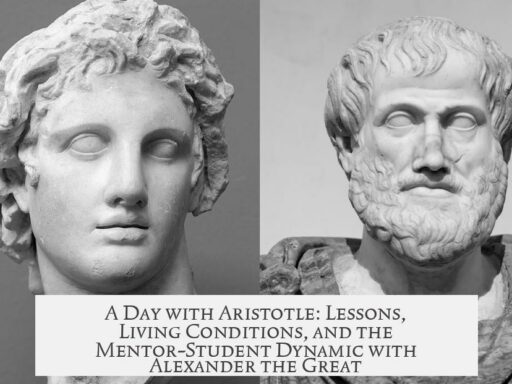The word “Christ” (Greek: Χριστός, Christós) was uncommon before Christianity and mainly appeared as a common noun meaning “anointed” or “ointment.” Its use before Christianity was mostly found in Jewish Hellenistic texts rather than widespread Greek literature.
Before the rise of Christianity, the term Christós derived from the Hebrew concept “Mashiach,” which means “anointed one.” In Hebrew tradition, this term described priests, kings, and sometimes prophets. Anointing implied divine appointment or consecration of authority. This usage is well established in the Torah and Hebrew Scriptures.
Greek literature outside Jewish sources rarely used Χριστός as a title. The Liddell-Scott-Jones lexicon notes it appears in Greek tragedy works by Aeschylus and Euripides, mostly as the noun meaning “ointment” rather than a title. The Thesaurus Linguae Graecae (TLG) database records a few examples from the 8th to 1st centuries BCE but emphasizes its limited frequency outside Jewish contexts.
The term gained prominence primarily in the Greek translation of the Hebrew Bible known as the Septuagint (3rd century BCE). Here, it translated the Hebrew word for anointed, referring to priests, kings (like David or Cyrus), and occasionally prophets. It also appears in Alexandrian Jewish writings such as the Oracula Sibyllina. This points to a more specific but restricted usage within Jewish Hellenistic scholarship rather than broader Greek culture.
Semantic development shows that by the 3rd century BCE, messianic expectations evolved toward an eschatological figure—a future savior who would lead and judge. This anticipates the later Christian theological meaning of Christós as the Messiah. Jewish hope at the time of Jesus frequently imagined the Messiah as a human or angelic leader, restoring political and religious order.
Importantly, Χριστός was not commonly used as a formal title or personal name before Christianity, except within certain priestly anointing ceremonies reflected in the Septuagint. Outside Jewish-Christian literature, such usage was minimal. The Greek homonym χρηστός (chrēstos), meaning “good” or “worthy” and used as a personal name, differs etymologically and semantically from Χριστός. References to “Chrēsto” in Roman texts relate to this homonym and not “Christós.”
The term’s rise as a theological title is tied to Christian origins. Early Christians identified Jesus as the Χριστός, the anointed Messiah, marking the word’s shift from a general anointing term to a specific religious designation. Biblical texts show that Χριστός became the Greek equivalent of Mashiach, integral to Christian belief and scripture. Michael Crawford and John M. G. Barclay discuss this development in the context of Christian origins, highlighting the social and religious reasons why Christós became a distinctive title in this period.
| Aspect | Pre-Christian Context | Post-Christian Development |
|---|---|---|
| Meaning | Anointed (ointment or appointed figure) | Messiah, Savior, Divine Son of God |
| Usage | Rare in Greek literature, common in Septuagint & Jewish texts | Widespread, title for Jesus and Christian theological concept |
| Semantic Range | Priests, Kings, Prophets – divine appointment | Messianic deliverer, eschatological judge and king |
| Frequency | Sparse, mainly Jewish-Hellenistic circles | Common in Christian writings and liturgy |
The word Χριστός was primarily technical, referring to those ritually anointed in Jewish religious practice. It did not yet hold the exclusive messianic and theological meaning that Christianity would assign. The rarity of the term outside Jewish contexts supports the idea that it was not a common Greek term before Christianity.
- Pre-Christian use of Χριστός mainly occurs in Jewish Hellenistic texts, especially the Septuagint.
- It originally designated anointed persons such as priests, kings, and prophets.
- In classical Greek, it mostly meant “ointment,” not a title.
- The Greek homonym χρηστός (chrēstos) is unrelated.
- Its theological significance as “the Christ” rose with early Christianity.
How Common was the Word ”Christ/Christós/Χριστός” Before the Rise of Christianity?
The word Christós was quite uncommon before Christianity emerged, primarily appearing in Jewish Hellenistic texts and rarely elsewhere in Greek literature. It mostly meant “anointed one” in religious contexts, not the messianic title we know today.
Curious about the everyday life of the word Christós before it became the superstar title for Jesus? Let’s take a stroll back through history, literature, and religious tradition to uncover how much the word actually showed up and what it meant.
Christós: A Rare Guest in Greek Literature
In classic Greek tragedy by Aeschylus and Euripides, you won’t find Christós popping up as a grand title or anything. Instead, it appears here and there with one humble meaning: ointment.
- Liddell-Scott-Jones (LSJ) lexicon records it mainly as χριστόν, a common noun for ointment or oil.
- That’s it—no kings, no messiahs, just grease for wounds or cosmetics.
- No royal fanfare, just slippery skin!
Outside Jewish and Christian texts, the word mostly sticks to this mundane usage. So, if you were an ancient Greek picking up a tragedy, hearing christós, you’d think, “Ah, lotion,” not “Messiah.”
The Jewish Alexandrian Connection and the Septuagint
This changes once we glance toward 3rd century BCE Alexandria. Here, a Greek-speaking Jewish community dives deep into translating Hebrew scriptures into Greek—the Septuagint. Christós gains traction.
- It appears frequently in the Septuagint, used to translate the Hebrew word māšîaḥ (מָשִׁיחַ), meaning “anointed one.”
- Kings like David and Saul, priests, and prophets receive this anointed label.
- The Oracula Sibyllina, or Sibylline Oracles linked with Alexandrian Jewish thought, also use Christós.
- The term thus becomes well established in Jewish-Hellenistic religious literature but stays rare elsewhere.
Alexandrian Jewish scholars helped preserve and spread Christós as a term describing individuals anointed by God often for leadership or spiritual roles.
What Does “Anointed One” Actually Mean?
The word stems from the Hebrew practice of anointing with oil, a ritual signaling divine approval or empowerment. Originally, this referred to:
- Priests — figures consecrated for sacred duties.
- Kings — leaders like Saul and David who were anointed to rule.
- Prophets — messengers set apart as God’s spokespeople, such as Elisha.
This ritual symbolized a conferment of divine authority, not just a fancy cosmetic trend. Essentially, “anointed” means “chosen and empowered by God.”
From Anointed Leaders to Eschatological Savior
Here’s where it gets interesting. As Hebrew kingdoms fell, the term develops a new edge:
- People start expecting a future “anointed one” — a Messiah — who will restore proper order.
- This figure evolves into a powerful, eschatological savior who judges the dead and leads forces of good against evil.
- Textual references in Daniel 11 and later apocalyptic literature like the Book of Revelation reflect this shift.
By the 1st century CE, many Jews envision the Messiah as a political or supernatural deliverer, someone who could resurrect fortunes and defeat oppressive rulers.
Was Χριστός a Common Title Before Christianity?
Turns out, calling someone simply “Christós” like it’s a formal title or name was not normal before Christianity. The term’s use as a priestly designation during anointing ceremonies is limited and almost always tied to Jewish texts, especially the Septuagint.
Outside religious scripts, you won’t find priests or kings walking around with “Christós” on their nameplates. This sets the stage for the word’s radical transformation in Christian theology, where it becomes central and loaded with new meaning.
Not to Be Confused: Chrēstos vs. Christós
Just to confuse things a bit, there’s a Greek homonym Chrēstos (χρηστός), meaning “good” or “worthy,” which some scholars note was a common name in Roman times. One Suetonius even mentions a “Chrēsto” leading Jews expelled from Rome.
This has absolutely nothing to do with Christós. Their origins and meanings don’t overlap. So, don’t mix “Chrēstos” the nice guy with “Christós” the anointed one.
A Breakdown Summary From Scholarship
“The LSJ finds it in tragedy (Aeschylus and Euripides), and in Greek translations of the Torah… Rare outside Jewish contexts and primarily associated with Alexandrian scholarship.”
“Originally used for priests, kings, and prophets—anointing symbolized divine authority.”
“Eschatological developments made Messiah a future savior figure judging dead, leading forces of good.”
“Limited priestly designation outside Jewish texts; virtually no formal title use before Christianity.”
“Greek homonym χρηστός (Chrēstos) means ‘good, worthy’ and is unrelated.”
All in all, most Greek occurrences of χριστόν before Christianity occur in Jewish and Christian writings, not ancient Greek tragedy or secular texts.
Why Does This Matter?
Understanding the rarity and original meanings of Christós before Christianity reveals how revolutionary the Christian movement was in redefining the term. It went from a term mostly signifying a ceremonial anointing in Jewish ritual to being THE defining title of Jesus as Messiah.
It also helps us grasp the layers of meaning behind the word and explains why early Christians’ use of it caused quite a theological stir.
Final Thoughts and Recommendations
If you’re digging into historical or theological studies, keep these points in mind:
- Look for the context when you see Christós—is it ritual anointing, royal status, or messianic expectations?
- Remember the difference between Jewish/Hellenistic uses and later Christian interpretations.
- Don’t confuse the Greek homonym Chrēstos with Christós—there’s no connection.
- Scholarship by Joseph A. Fitzmyer, John J. Collins, and J. J. M. Roberts provides solid, detailed insights on this evolution.
So, the next time you hear the word “Christ,” you’ll know it had a humble start as “ointment” and a deeply rich legacy as anointed kings and prophets before skyrocketing into a messiah title sacred to billions.
Who knew a word about oily salves could come packed with so much history and mystery?


